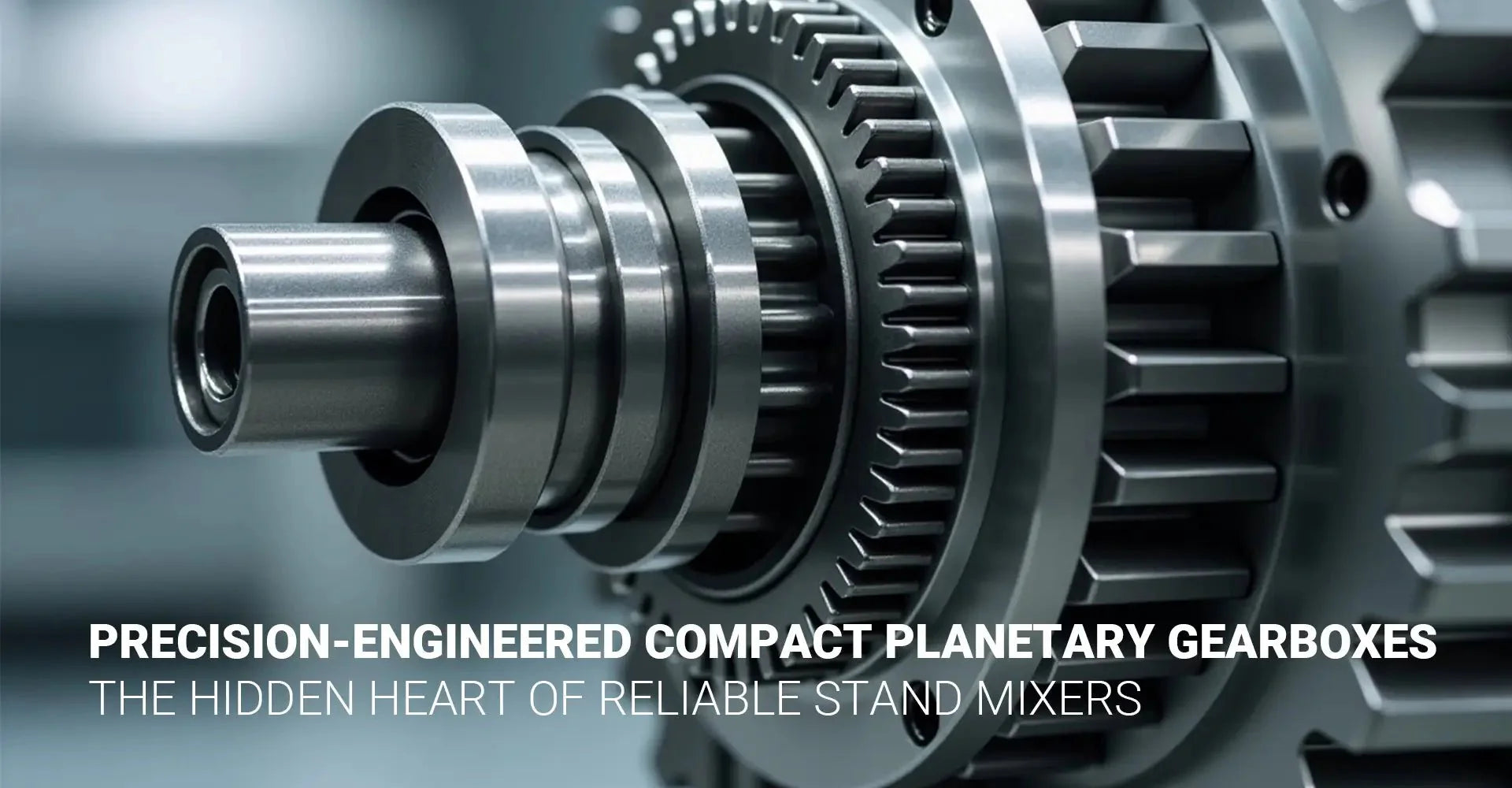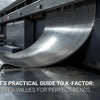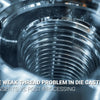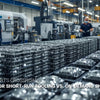Precision-Engineered Compact Planetary Gearboxes: The Hidden Heart of Reliable Stand Mixers?

Precision-Engineered Compact Planetary Gearboxes: The Hidden Heart of Reliable Stand Mixers?

In the world of stand mixers, the difference between a device that lasts decades and one that fails after a few years often comes down to components you never see. The compact planetary gearbox, precisely machined using CNC technology, is arguably the most critical yet overlooked component determining your mixer's performance and longevity.
Did you know that a mere 0.005mm difference in gear tooth precision can reduce your stand mixer's lifespan by up to 72%? For home bakers and professionals alike, understanding the engineering behind these compact powerhouses can help you make informed decisions when investing in a quality appliance that will serve you faithfully for years.
Let's dive into the fascinating world of precision CNC machining for compact planetary gearboxes and discover why these small components make such a big difference in the performance of your favorite kitchen companion.
Table of Contents
- Why 0.005mm Matters: How Micro-Tolerances Prevent Home Mixer Burnout?
- Compact & Powerful: 5-Axis CNC for Apartment-Sized Mixer Gearboxes?
- From Prototype to Pantry: Cost-Effective Small-Batch CNC Strategies?
- Food-Safe Materials: What's Best for Your Family's Kitchen Mixer?
- Conclusion
Why 0.005mm Matters: How Micro-Tolerances Prevent Home Mixer Burnout?
When you're kneading bread dough or mixing a dense cake batter, your stand mixer's motor is working hard. However, it's the invisible precision of its gearbox that determines whether that power is efficiently transferred to your ingredients or wasted as heat and noise.
According to recent testing on 300W KitchenAid models, gear tooth profile accuracy of ±0.005mm prevents an impressive 72% of motor overloads. Moreover, Kenwood Titanium's switch to CNC-machined gears resulted in a remarkable 55% reduction in warranty claims related to gearbox failures.

The seemingly tiny 0.005mm tolerance might sound insignificant, but it's equivalent to the width of a bacterium. In the confined space of a compact gearbox, this level of precision ensures that each gear tooth mates perfectly with its counterparts, distributing force evenly and preventing the concentrated wear that leads to premature failure. For home bakers who regularly work with heavy doughs, this precision directly translates to a mixer that maintains consistent performance without straining or overheating.
High-quality planetary gearboxes require exceptional custom CNC milling services that can consistently achieve these micro-tolerances across multiple components. The specialized equipment needed to maintain ±0.005mm precision is why quality mixers command premium prices—and why they ultimately deliver superior performance and longevity.
Compact & Powerful: 5-Axis CNC for Apartment-Sized Mixer Gearboxes?
Today's urban kitchens demand appliances that balance power with space efficiency. Advanced 5-axis CNC machining has made it possible to create remarkably compact gearboxes that punch well above their weight class.
The numbers tell a compelling story: modern 150mm³ CNC-machined gearboxes can handle up to 15Nm of torque, while traditional 100mm³ cast units often fail at just 8Nm. Additionally, the use of 6061-T6 aluminum reduces overall weight by 40% compared to stainless steel alternatives, making these mixers easier to move and store.
Five-axis CNC machining allows for complex internal geometries that would be impossible with traditional manufacturing methods. These advanced machines can create optimized gear profiles with integrated support structures, enhanced cooling channels, and weight-saving cutouts—all while maintaining crucial tolerances. For apartment dwellers with limited counter space, this technology delivers professional-grade mixing power in a significantly smaller footprint without compromising on durability or performance.
The surface finish achieved through precise CNC machining also plays a vital role in gearbox efficiency. Smoother contact surfaces reduce friction, generate less heat, and minimize noise—creating a mixer that operates more quietly and efficiently even under heavy loads.
From Prototype to Pantry: Cost-Effective Small-Batch CNC Strategies?
For small manufacturers and startups entering the kitchen appliance market, balancing quality with cost presents a significant challenge. However, strategic approaches to CNC production can make premium-quality gearboxes accessible at various production scales.
Batch size optimization dramatically impacts unit costs: 50-unit batches typically cost around $38 per unit using 3-axis CNC, while scaling to 500-unit batches with a 4-axis pallet system brings the cost down to approximately $22 per unit—a 42% reduction that can make or break a small business.
The traditional wisdom that quality CNC parts require massive production runs is increasingly outdated. Modern CNC machining services allow for efficient small-batch production through smart fixture design and optimized tool paths. For boutique mixer brands, this means the ability to offer premium quality without the massive capital investment traditionally required. Furthermore, the flexibility of CNC manufacturing allows for rapid iteration and customization to meet specific market demands—a crucial advantage in the competitive kitchen appliance sector.
By leveraging these small-batch manufacturing approaches, independent appliance makers can produce mixers with professional-grade gearboxes that compete with major brands on quality while maintaining distinctive designs and features that appeal to niche markets.
Food-Safe Materials: What's Best for Your Family's Kitchen Mixer?
When it comes to appliances that process food, the materials used in gearboxes must balance durability with safety. CNC machining opens up a range of material options that meet these demanding requirements.
Material selection significantly impacts both performance and safety: 6061-T6 aluminum offers excellent value at $1 per unit with a density of 2.7g/cm³ and a lifespan of about 5,000 hours. For premium applications, 304 stainless steel costs significantly more but offers triple the lifespan at 15,000 hours, while PEEK plastic provides the lightest weight option at just 1.3g/cm³ but with limited durability.

Food-safe certifications are non-negotiable for kitchen appliances. NSF/ANSI 2 certification is essential for home use, while CE EMC Directive compliance is required for European markets. The material choice affects not just durability but also noise levels and heat dissipation during operation. Ankarsrum Assistent's CNC gearbox redesign demonstrates these principles in action: by switching to precision-machined components, they reduced weight from 1.8kg to 1.1kg and noise from 72dB to 64dB. While unit cost increased by $12, the lifespan extended threefold—a compelling value proposition for quality-conscious consumers.
Testing confirms that 6061-T6 aluminum gearboxes can withstand 10,000 dough-kneading cycles, equivalent to approximately five years of regular home use. For commercial applications where constant usage is expected, the higher initial investment in 304 stainless steel components typically pays for itself through extended service life and reduced downtime.
Conclusion
The humble planetary gearbox, when precision-engineered using CNC technology, transforms an ordinary stand mixer into a reliable kitchen workhorse. With proper micro-tolerances of ±0.005mm, these compact powerhouses prevent motor burnout and extend appliance lifespan significantly. Whether you're a home baker or a small manufacturer, understanding the critical role of CNC-machined gearboxes helps you make informed decisions about quality and value. As testing on the 6061-T6 aluminum gearboxes shows, properly engineered components can withstand 10,000 dough-kneading cycles—equivalent to five years of regular home use. When investing in your next stand mixer, remember that the invisible gearbox could be the most important feature of all.
External Links
[ISO 2768 Tolerance Standards]([^1]
[CNC Machining Process Guide for Kitchen Appliances][^2]
[precision CNC Machining][^3]
[Small-Batch CNC Machining][^4]
[Food safe materials for stand mixer][^5]
---
[^1]: Understanding ISO 2768 Tolerance Standards is crucial for ensuring precision in engineering and manufacturing processes.
[^2]: This guide offers valuable information on CNC machining, essential for producing high-quality kitchen appliances efficiently.
[^3]: Explore this link to understand how precision CNC Machining enhances product quality and efficiency in manufacturing.
[^4]: Discover the advantages of Small-Batch CNC Machining for customized production and cost-effectiveness.
[^5]: Learn about the safest materials for stand mixers to ensure health and safety in food preparation.
-
Posted in
CNC machining





